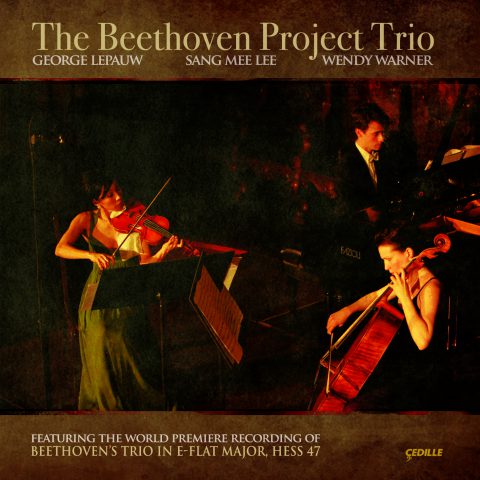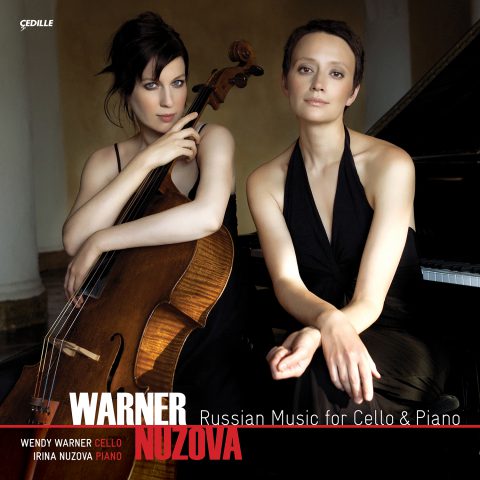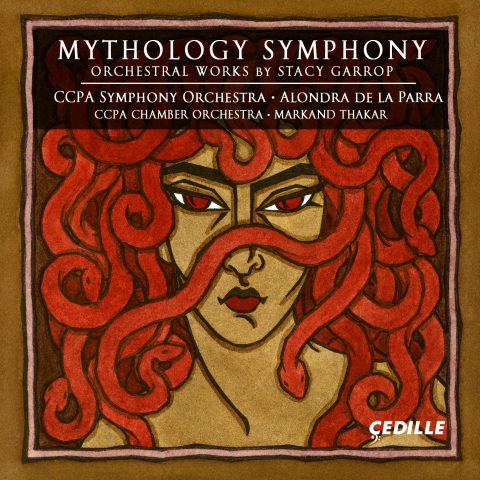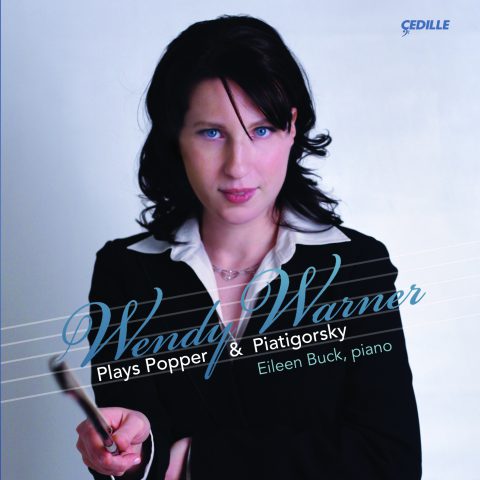Store
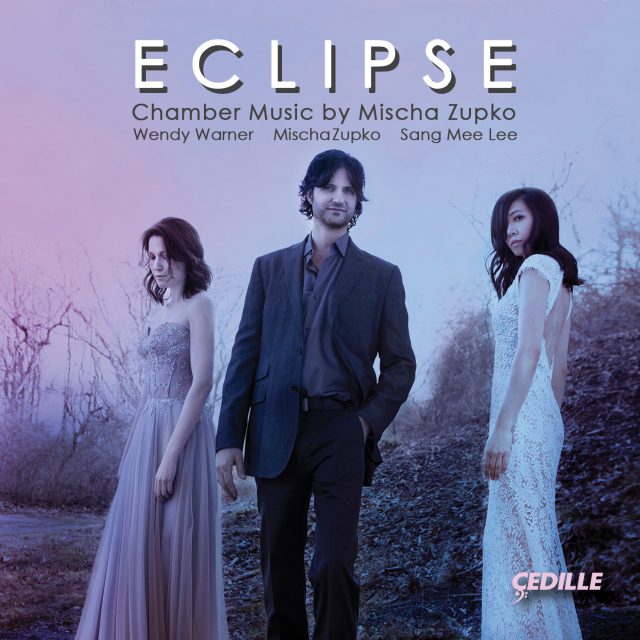
Eclipse encompasses world-premiere recordings of inventive, virtuosic, and impassioned chamber works, written in a present-day musical language by the strikingly original American composer and pianist Mischa Zupko. Joining him are two close friends and accomplished colleagues, the sublime violinist Sang Mee Lee, who chairs the string department at the Music Institute of Chicago, and internationally renowned cellist Wendy Warner, a protégé of Mstislav Rostropovich. Zupko wrote some of the works expressly for these artists.
Imbued with Zupko’s heartfelt humanism, Eclipse explores themes of separation, contrast, and convergence on cosmic as well as intimate levels. In the album’s centerpiece and title track, Eclipse, violin and cello approach like two celestial bodies, their distinct musical lines merging and becoming one strangely luminous entity before continuing on their trajectories across the cosmos. From Twilight and Nebula also reflect on mysteries of the distant universe. The ecstatic Rising depicts Jesus’s ascension to heaven as recounted in the Gospel of Luke. The violin creates an aural illusion of a spiraling ascent while the piano’s reverie evokes the earthbound faithful waiting for his return. The contrasting Fallen is a study in spiritual despair, based on a García Lorca poem. Shades of Grey for violin and piano (no relation to the similarly titled erotic romance novel) is an “inventive and intricate exploration” of the dynamics of personal relationships (Chicago Reader). Love Obsession for cello, piano, and six pre-recorded electronic cello tracks exudes a more visceral, single-minded passion.
Composer-in-residence at the Music Institute of Chicago, Zupko has received plaudits from The New York Times and Los Angeles Times. He’s been featured in the Chicago Reader and New Music USA’s New Music Box, which called him “a humble, energetic, and constantly searching artist.” Chicago’s New City hails him as a composer “with something to say, and the adventurous listener will be rewarded.”
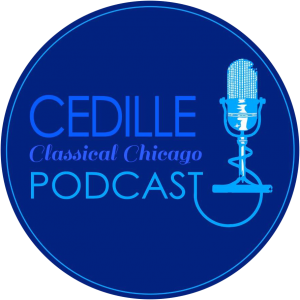
Listen to Steve Robinson’s interview
with Mischa Zupko and Sang Mee Lee on Cedille’s
Classical Chicago Podcast
Preview Excerpts
MISCHA ZUPKO (b.1971)
Shades of Grey
Artists
Program Notes
Download Album BookletECLIPSE: CHAMBER MUSIC BY MISCHA ZUPKO
Notes by Mischa Zupko
Eclipse is the embodiment of serenity, using as a focal point subtle, overlapping figures between the violin and cello. Even as heavenly bodies coalesce, the points of overlap between the two voices increase, until the luminous process resolves into simultaneous song. But, the moment is all too fleeting as the mingled voices soon diverge and separately traverse the universe once again. This musical form was inspired by the image of two heavenly bodies slowly engulfing one another in a shadowed sum greater than their parts. Eclipse puts voice to that long-anticipated union that shines with a strange and profound new light.
Eclipse was written for Sang Mee Lee and Wendy Warner.
Skol/ is the name of the wolf
Who follows the shining priest
Into the desolate forest,
And the other is Hati, Hroovitnir’s son,
Who chases the bright bride of the sky.
(The Poetic Edda. Grimnismal, stanza 39)
In Viking mythology, the wolves Skoll and Hati chase the sun and moon. When either catches its elusive solar prey, there is an eclipse. The Vikings were not alone in their fascination with the heavens. The starlit sky has inspired some of humanity’s greatest questions, fueling the inexorable search for the meaning of our existence and our relationship with all things existent. While in an earlier time that search led to the creation of myths, today it stretches the imagination to encompass the notion that natural universal laws govern all things.
One thing has not changed. When we peer into the sky, whether through the eyes of the ancients or the lens of a telescope, the sight is the same – light and dark.
Our associations with these polar opposites is also the same – light symbolizes existence and dark speaks of absence. The word “eclipse” is derived from the ancient Greek noun ekleipsis, which conjures abandonment; when turned into a verb it means “to cease to exist.” It is no wonder the Vikings attempted to scare off the wolves baying at the sky for fear that their very existence, totally reliant on light, was threatened. We now understand an eclipse to be, not an absence, but an alignment. Similarly, we also understand that darkness is not empty or void of meaning. Relatively recent discoveries of black holes and their event horizons suggest immeasurable, previously unimaginable possibilities in even the “emptiest” of spaces. It is this notion of polarity between light and dark, and their cosmic convergence that inspires this project.
Focusing on cosmic phenomena and the ubiquitous human search for meaning, the program is arranged as a balance of symmetries converging on the central selection and title track. The opening works, Fallen (Track 1) and Rising (Track 2) explore the intertwining and inescapable worlds of spiritual despair and ecstasy. The final tracks, Shades of Grey (Tracks 6-9) and Love Obsession (Track 10) pursue an obsessive and exhaustive search for meaning in the corporeal realm of human love; longing and tender in the first and more driven and frenetic in the second. From Twilight (Track 3) and Nebula (Track 5) frame the title track and share with it an infatuation with cosmology and its endless mysteries. Eclipse (Track 4), the centerpiece, is the convergence of these myriad points of light and dark and all the shades in between that color not only our atmosphere but also our existence.
It is with deep gratitude that I acknowledge those who have helped bring this project to light:
To my dear friends and colleagues Sang Mee Lee and Wendy Warner, who were critically important in all aspects of the curation of this work. Their partnership made this an incredible journey that embodies the life-giving union suggested by the theme of this project.
To Jim Ginsburg for his service in producing and promoting Chicago artists, and for his support of this project.
To Bill Maylone for his inspiring gifts as an engineer and his keen insight and patience in working with us to create sounds we could only imagine.
To my valued friends and colleagues Winston Choi, Nicholas Photinos, Minghuan Xu, Jeffrey Zeigler, and the late Oliver Colbentson, who were inspirational in the creation of Fallen, Love Obsession, Shades of Grey, and Rising.
To the Barlow Endowment for Music Composition for commissioning Shades of Grey.
To teachers and mentors who continue to inspire me, including my father Ramon Zupko, Eugene O’Brien, Don Freund, David Dzubay, Augusta Read Thomas, Bernard Rands, John Harbison, Claude Baker, and Frederick Fox.
To Mark George and Fiona Queen at the Music Institute of Chicago for so generously providing us with ample time to record in beautiful Nichols Hall. MIC has given so much to Ms. Lee, Ms. Warner, and myself over many years and we are both moved and honored to have had this opportunity to record together in this place.
To JoAnn Post, my friend and colleague, a writer par excellence and one of the kindest people I know, for providing editorial support for the liner notes.
And lastly, I offer very special thanks to my parents Vonette and Ramon Zupko, and to my wife Minkyoo and son Leo, my sun and moon, my everything.
Rising (Track 1) reflects on the event of Jesus’ Ascension from earth to the right hand of God. (Luke 24.50-53) The work opens with a rising violin motive, an upward-turning arabesque that creates the aural illusion of a spiraling ascent. As the work reaches for its conclusion, the violin makes its final ascent into the ether, while the piano continues a reverie suggestive of the faithful who long for Jesus’s return, firmly planted on the earth but yearning for the heavens.
Rising was commissioned for the 50th Anniversary of Lutheran Church of the Ascension, Northfield, IL. It is dedicated to the late violinist Oliver Colbentson, esteemed colleague and friend of the congregation.
Fallen (Track 2) is a narrative of despair, based on the poem “Sucidio” by Federico Garcia Lorca. The poet describes the decisive moment when a youth steps off a high ledge, ending a brief yet promising life. This poignant, heart-breaking scene is pursued in two-line stanzas, each a distinct and calculated step toward an inevitable ending. The extreme angularity of the prose and its bleak imagery inspires this musical imagining of that desperate moment.
Fa/fen opens with a hard-edged motive, played simultaneously by piano and cello. In subsequent iterations, the motif alternates between the two in rapid succession, each reacting to the other with a cool decisiveness that only hints at the underlying sorrow. Suddenly, the motive is transformed into a “twitchy” lyrical statement that reaches into the cello’s uppermost range before descending in a slow motion, breath-catching free fall. Now, from the netherworld of the cello’s range, the music accelerates, rising and returning to real time as it races toward its ultimate and inevitable end.
Fa/fen was written for cellist Nicholas Photinos and pianist Yasuko Oura.
From Twilight (Track 3) is a meditation on the mystery of the cosmos as night descends. The first notes emulate points of light blinking open in the sky, appearing sparsely but with increasing frequency until a shower of light breaks overhead. Atop this subtly brightening skyscape are three prominent musical gestures – a distant harmonic, a short-breathed lyrical idea that comes to dominate, and a short explosion of fast notes. Each of these gestures conjures a specific image and feeling evocative of the passing night. The listener is left to marvel at sublime creative order, always tempted to chaos by the seemingly random surprises that light our lives.
From Twilight was written for Sang Mee Lee.
Eclipse (Track 4) is the embodiment of serenity, using as a focal point subtle, overlapping figures between the violin and cello. As the heavenly bodies coalesce, the points of overlap between the two voices increase, until the luminous process resolves into simultaneous song. The moment is all too fleeting though as the voices soon diverge and journey separately once again. This musical form was inspired by the image of two heavenly bodies slowly engulfing one another in a shadowed sum greater than their parts. Eclipse puts voice to that long anticipated union that shines with a strange and profound new light.
Eclipse was written for Sang Mee Lee and Wendy Warner.
Nebula (Track 5) hypnotizes as its opening seductive phrase, voiced by solo cello, emerges from and engages the void of silent space, suggesting an almost infinite arc of which we catch only glimpses. All subsequent phrasings pursue this model, growing in length even as the spaces between them gradually diminish. Meanwhile, the music undulates, absorbing an increasing number of artifacts that both propel the music and refract it in a kaleidoscopic way. Just as the swirling clouds of the nebula cool and ultimately implode in an igniting of new life, the music aches with that inevitable, endless gathering of intensity and its explosive release. A display of relentless virtuosity and vigor, Nebula both drives and is driven by that cosmic creation of new life.
Nebula was written for Wendy Warner.
Shades of Grey (Tracks 6-9) was conceived as a creative meeting of matched minds. Written for husband-and-wife Winston Choi and Minghuan Xu of Duo Diorama, the work was first imagined as Choi and Xu prepared to marry. A work that treated violin and piano as equal partners seemed apropos.
In any relationship, “equal” is a relative term, an ideal defined and redefined as the ambiguous roles, the shades of grey between partners emerge. Each instrument plays an undeniable, utterly unique role without which the music could not exist. They are two individuals inextricably wed as a shadow to its object, or as currents below the surface create subtle changes in the waves above.
Written into the work are inherent intricacies that can only be managed by a true duo. Since the interdependence of parts occurs at such an intense level, one must be entirely in sync with the other.
Shades of Grey is admiringly dedicated to Duo Diorama. It was commissioned by the Barlow Endowment for Music Composition at Brigham Young University.
Love Obsession (Track 10) imagines the relentless pursuit of an object of desire, expressing inescapable primal passions and their slow shaping of the human heart. That drive is represented by that musical singularity, the eight-note arpeggio, which is itself an obsession. Unrelenting in its evolution, the expression is fiercely aggressive though subtly subject to a steady, rhythmic process that ultimately resolves in a smoldering, quiet passion. This transformation, jarring in its abrupt juxtaposition, is merely a recasting of that same eight note ideal, the musical image of love’s tendency to change and its possibility of ever deeper intimacy.
Love Obsession was commissioned by and written for cellist Jeffrey Zeigler. The six electronic tracks were originally recorded by cellists David Cunliffe, Nicholas Photinos and Wendy Warner.
Wendy Warner performs all of the tracks on this recording.
Love Obsession is passionately dedicated to Minkyoo, the love of my life.
Album Details
TT: (67:45)
Producer: James Ginsburg
Engineer: Bill Maylone
Editing: Jeanne Velonis
Editing Assistance: Mischa Zupko
Recorded: Nichols Concert Hall at the Music Institute of Chicago
Rising and Love Obsession: September 1, 2014; Fallen: January 6-7, 2014; Shades of Grey: February 22, 23, and March 31-April 1, 2015
Fay and Daniel Levin Performance Studio at WFMT Chicago
Eclipse, From Twilight, and Nebula: June 17-19, 2015
Photography: Lisa Mazzucco
Graphic Design: Nancy Bieschke
© 2016 Cedille Records/Cedille Chicago
CDR 90000 168
